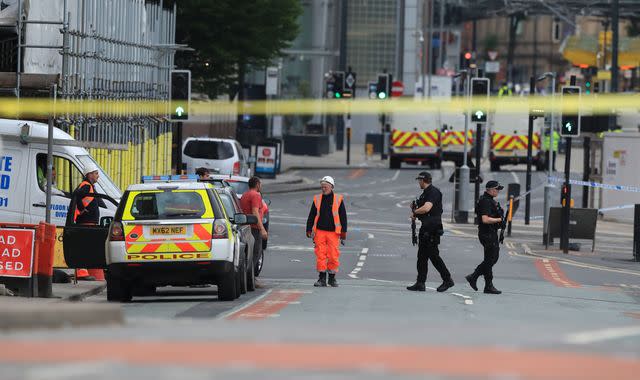Young people affected by Manchester Arena bombing urged to share experience of support given

Children affected by the Manchester Arena terror attack are being urged to share their experiences of the support they have received.
A new online survey is aimed at identifying what help will be most beneficial to future young survivors of similar incidents.
It forms part of the ground-breaking project, Bee The Difference, which is a collaboration between nine young survivors of the attack, the National Emergencies Trust and researchers from Lancaster University.
Thousands of young people and parents attended the Ariana Grande concert on 22 May 2017.
Over 1,000 were injured and 22 people died when Salman Abedi detonated a bomb as fans were leaving the arena.
Hundreds more suffered severe psychological trauma.
Lead researcher Dr Cath Hill, a lecturer at the university and also co-founder of the Manchester Survivors Choir made up of attack survivors, said: "I know through my experience with the choir that young people affected by the Manchester attack have sought support in a range of places, their GP, counsellors, teachers, social groups and social media.
"Some of this was incredibly helpful, some of it missed the mark completely, while some measures taken inadvertently introduced more trauma.
"Five years on it's time to start to talk about this and make sure young people who experience similar events in the future get the best possible care."
Read more:
The victims of the attack, remembered by their loved ones
Ellie Taylor, 20, who was 15 when she was caught up in the attack, said: "Bee The Difference is a chance to take something that changed our lives completely in a negative way and turn it into something positive for the future.
"The questionnaire isn't invasive.
"It's not about your personal story and what you went through.
"It's just a few questions to find out what worked mentally for you, and what didn't help, so we can find out what needs to happen in the future."
The chief executive of the disaster response charity National Emergencies Trust, Mhairi Sharp, said: "Only those who have lived through an act of terror can truly understand the needs of those affected, which is why this project gives a vital voice to young Manchester survivors."
Later this year the anonymised survey findings will be shared with various organisations including government, healthcare and education providers and other civic and charitable bodies.
The survey is open to anyone aged under 18 at the time whose lives were affected including those impacted by what happened to a loved one or friend, as well as those who were present at the Arena when the attack happened.
Further details of the survey are available from www.nationalemergenciestrust.org.uk/beethedifference

 Yahoo News
Yahoo News 
